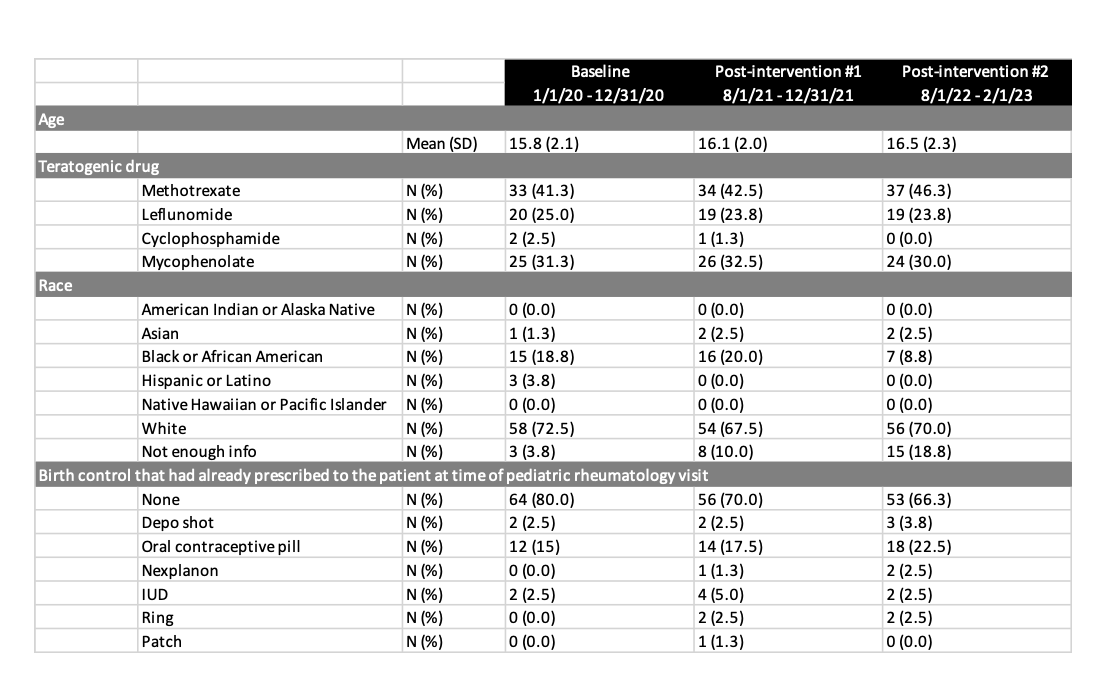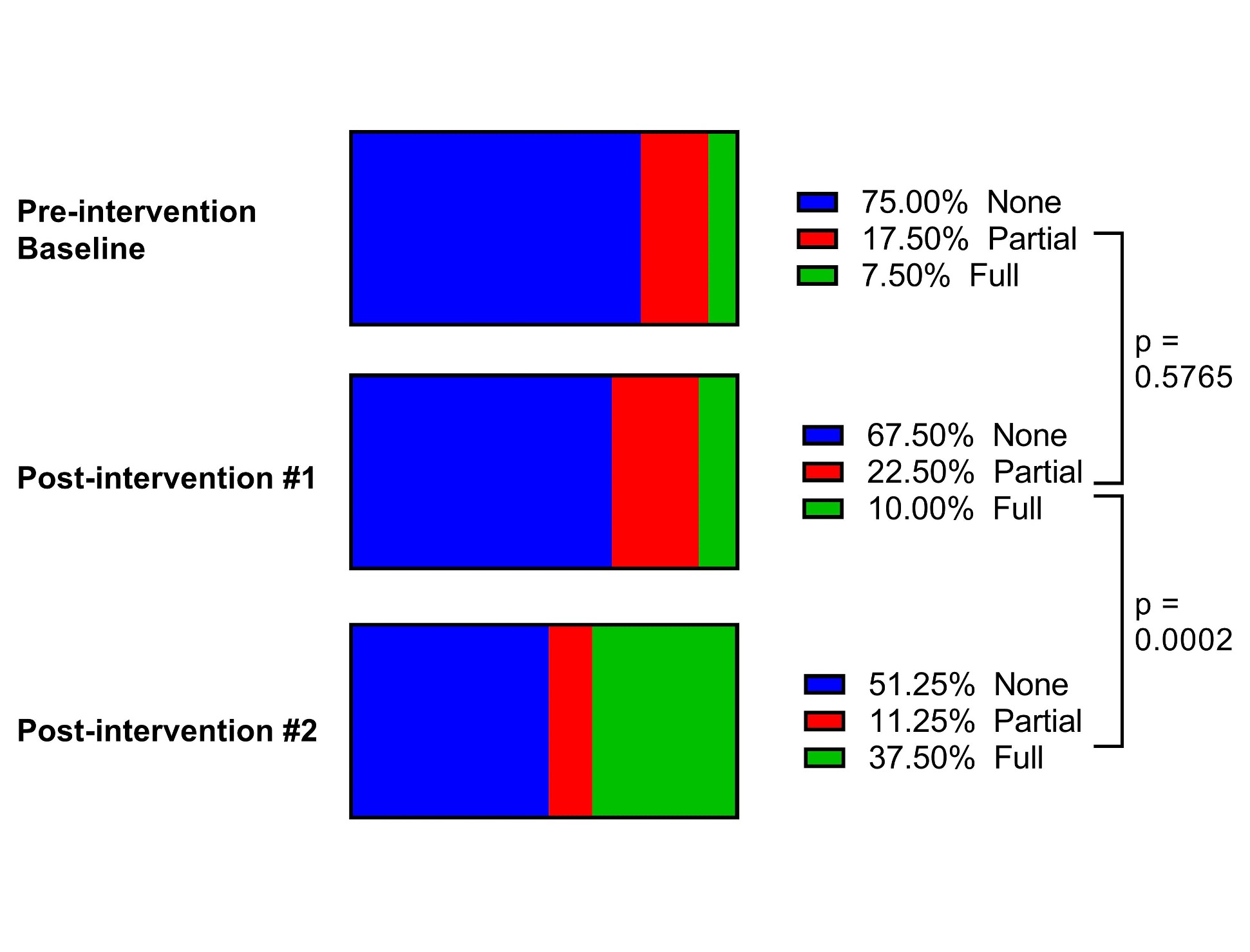Session Information
Date: Monday, November 13, 2023
Title: (1345–1364) Reproductive Issues in Rheumatic Disorders Poster II
Session Type: Poster Session B
Session Time: 9:00AM-11:00AM
Background/Purpose: Several rheumatologic medications routinely prescribed to adolescent females are teratogenic. However, there is no standard method to educate our patients and their families about this risk. This is a significant problem because U.S. teenage females with chronic illnesses engage in sex without contraception, and there are now strict abortion bans in some states prohibiting abortions for fetal anomalies. We performed a quality improvement (QI) project to increase the proportion of reproductive-age females receiving documented reproductive health counseling (RHC) at outpatient clinics in our single-center tertiary care practice. We specifically sought to educate patients about the teratogenicity of their medications and the need for contraception.
Methods: We included female patients aged 13 or older who were being seen as an outpatient and were taking methotrexate, mycophenolate, cyclophosphamide, or leflunomide. Two plan-do-study-act (PDSA) cycles were completed to test the following interventions: (cycle 1) physician and nurse educational seminar and creation of a smart phrase, which is a short template in our electronic health record system that users can pull into their notes on demand, (cycle 2) personal appeal to clinicians via email and development of an electronic health record note template, which automatically populates a note unlike a smart phrase. Chart review was performed at three time periods (baseline and after each round with n=80 each time period) to assess for documentation of “full RHC” (discussed risk of pregnancy AND the need for contraception), “partial RHC” (discussed risk of pregnancy OR the need for contraception), or “no RHC.” Chi-squared test was used for statistical analysis.
Results: In the anonymous pre-intervention questionnaire administered to patients (n=30), 46.7% said a rheumatologist had already discussed the need for contraception and 53.3% of patients knew that their medications may cause birth defects. However, chart review at baseline found that 60 of 80 (75.0%) patients received no documented RHC. After the first PDSA cycle, 26 of 80 (32.5%) patients received documented RHC, which was not a statistically significant improvement from baseline, p=0.5765. After the second PDSA cycle, 39 of 80 (48.8%) patients received documented RHC, which was a statistically significant improvement from the first PDSA cycle, p=0.0002. We found that patients prescribed methotrexate were more likely to receive RHC than those prescribed mycophenolate or leflunomide.
Conclusion: Overall, we learned that the most effective intervention for our group was creating a note template in Epic and sending a division-wide email. This project shows that it can be simple to improve reproductive health counseling because both interventions required no specialized skills or significant investment of resources. The next step in our PDSA cycle is to include RHC on printed after visit summaries (AVS) that are given to patients at the end of each visit.
To cite this abstract in AMA style:
Ferguson R, Marmor I, Kitcharoensakkul M. Improving Reproductive Health Counseling for Pediatric Adolescent Females Prescribed Teratogenic DMARDs [abstract]. Arthritis Rheumatol. 2023; 75 (suppl 9). https://acrabstracts.org/abstract/improving-reproductive-health-counseling-for-pediatric-adolescent-females-prescribed-teratogenic-dmards/. Accessed .« Back to ACR Convergence 2023
ACR Meeting Abstracts - https://acrabstracts.org/abstract/improving-reproductive-health-counseling-for-pediatric-adolescent-females-prescribed-teratogenic-dmards/


